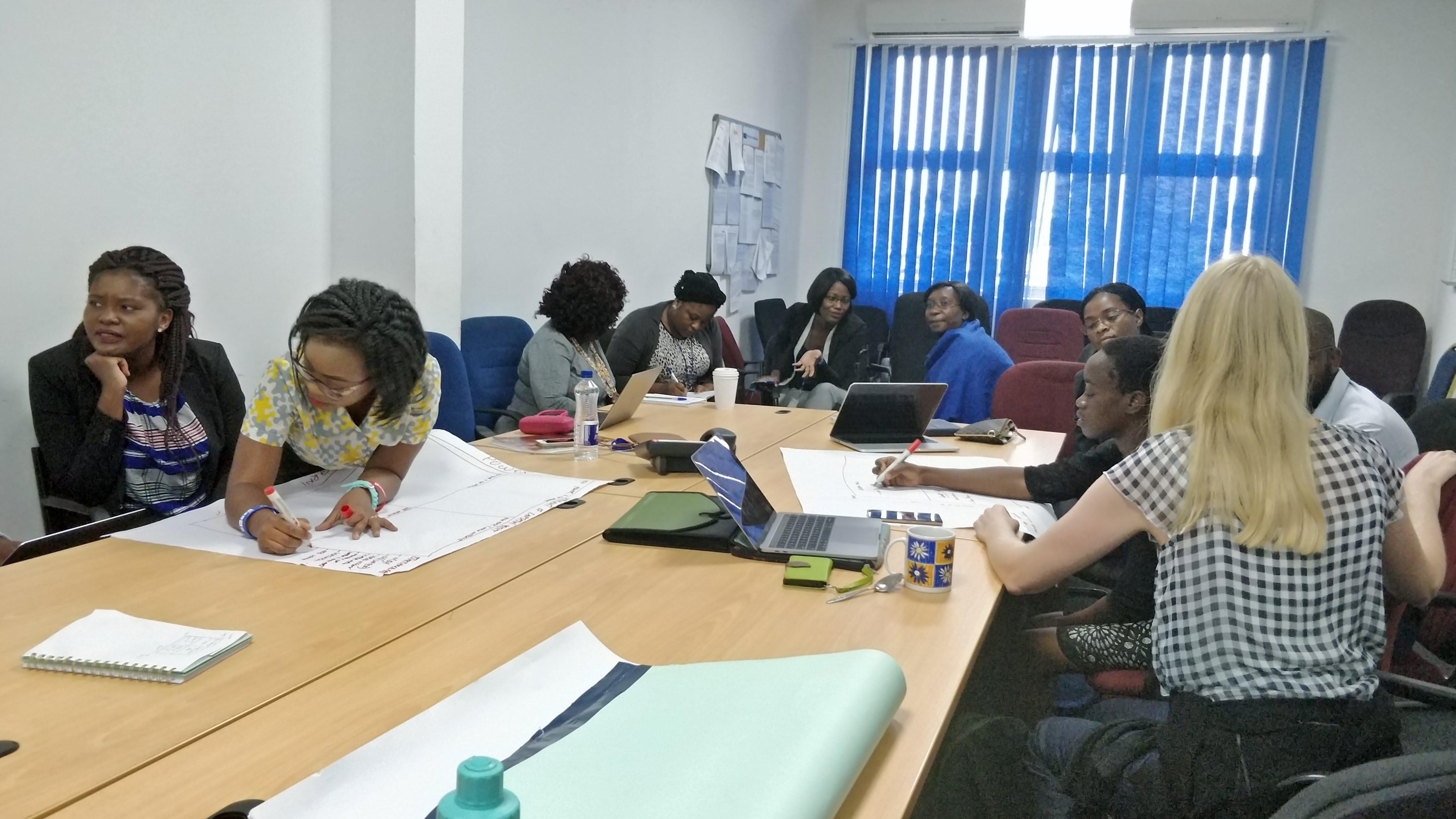Planning for Impact: Stakeholder Engagement in Zambia

Last week, I facilitated an outcome mapping workshop at the Centre for Infectious Disease Research Zambia (CIDRZ) in Lusaka, Zambia. CIDRZ are one of SHARE’s main Phase II partners and they are implementing San Dem - a behaviour change intervention to enhance demand for and acquisition of improved toilets in peri-urban informal settlements in Lusaka, Zambia.
Outcome mapping is a planning, monitoring and evaluation approach that SHARE is using to plan for research uptake in key stakeholders’ policies and programmes in each focus country. It involves stakeholder mapping and analysis, and describes the ideal changes we would like to see in stakeholders actions and developing activities to help bring about this change.
CIDRZ had analysed stakeholders and developed an engagement plan at the beginning of Phase II of SHARE This recent workshop presented a great opportunity to reflect on the successes and challenges of 2017 and to plan ahead for 2018.
Looking back
We started the workshop by reflecting on key achievements from 2017. These included a visit by the UK Under-Secretary of State for International Development, the Hon James Wharton, to Bauleni compound where the intervention is taking place. CIDRZ was able to develop further engagement with DFID as a result of this, recently successfully receiving funding from DFID for a new behaviour change intervention on cholera in peri-urban Lusaka. The new grant will build on the behaviour change approaches used in San Dem.
Other major achievements included being invited to speak at two Technical Working Group meetings and building stronger relationships with international and local NGOs in Lusaka. Participants also spoke about the importance of engagement at the community level and how this helped them to reach landlords to participate in the intervention as well as to engage other key stakeholders in Bauleni.
Challenges in the past year included engaging key funders who have busy schedules and competing priorities – disseminating the research results in 2018 will provide a new opportunity for further engagement!
Planning ahead
The CIDRZ team reviewed their research uptake goals for each stakeholder from government ministries to donors to community members. This enabled them to notice any gaps or key areas to focus on.
We realised that some of the progress markers – indicators defining changes we would expect to see through engagement work, changes we would like to see, and changes we would love to see if stakeholders are really engaged – needed to be adapted. For example, timelines for government reviewing policy have changed since CIDRZ created their original outcome mapping document. There was also a new opportunity to focus on incorporating behaviour change in health programming.
The team used the workshop to adjust progress markers as well as to plan activities to target each stakeholder including dissemination meetings, writing policy briefs, one to one meetings and creating guidance for WASH practitioners. This plan will be reviewed regularly to ensure that the research findings influence the right people at the right time to inform policy and practice.
It was fantastic to work face to face with the team on outcome mapping and to learn from their experiences working with different stakeholders. This review workshop also helped us to see the positive impact of planning for stakeholder engagement from the beginning of research projects!
